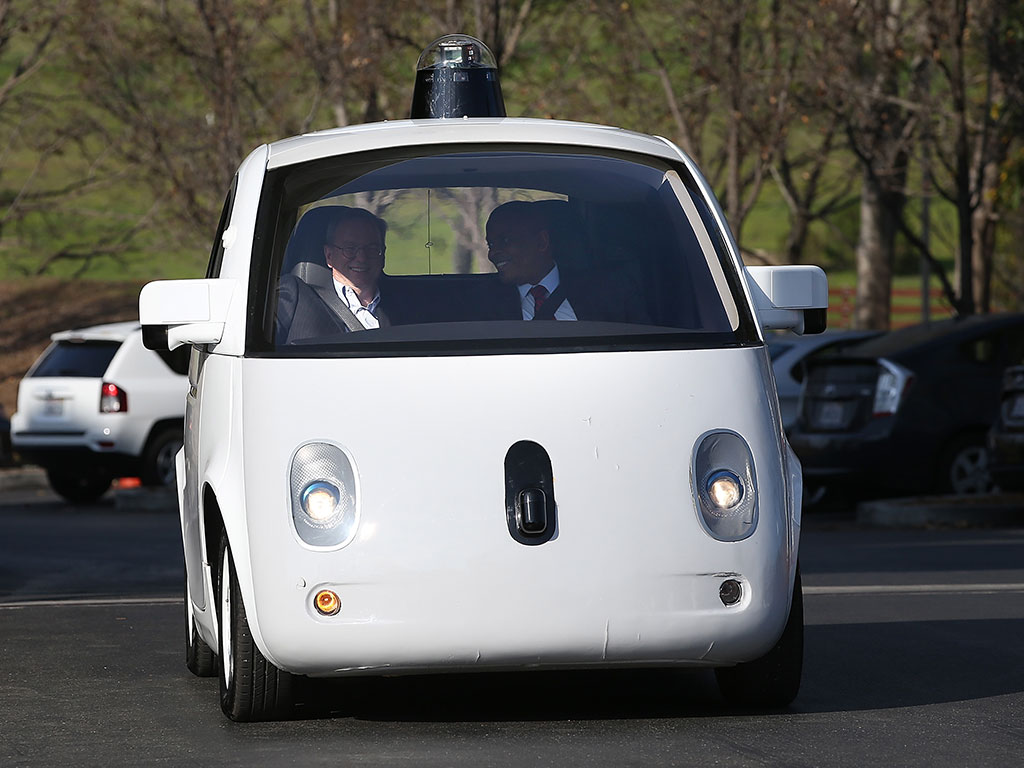US unveils $4bn autonomous vehicle initiative
The Department of Transportation is looking into the regulatory obstacles for self-driving vehicles, and plans to introduce a uniform set of laws for all 50 states

Transport Secretary Anthony Foxx takes a trip in a Google self-driving car with Google Chairman Eric Schmidt. Carmakers have previously been daunted by the idea of having to design autonomous vehicles that meet separate sets of regulations in each of the 50 US states
The US Department of Transportation has proposed a 10-year, $3.9bn initiative to speed up the adoption of autonomous vehicles across the US by implementing a uniform set of rules for all 50 states. Doing so, according to Secretary of Transportation Anthony Foxx, will reduce human error and address some of the country’s infrastructure problems.
Speaking at the North American International Auto Show in Detroit, Foxx said the country’s transportation infrastructure would be unable to accommodate a future in which 75 percent of the population lived in one of 11 US “megacities” by the year 2045. “If the government doesn’t change its ways, drivers in the future won’t be moving on our highways, they will be crawling”, he said.
The proposal to implement a uniform set of laws was welcomed by carmakers
The proposal to implement a uniform set of laws was welcomed by carmakers, many of them familiar with the difficulties of juggling multiple sets of rules and regulations. Backed by Google, Tesla, Ford, GM and Volvo, Foxx and his team will spend the next six months finalising the laws.
Regulatory hurdles have been cited by many in the business as one of the issues standing in the way of increased adoption, and Volvo felt strongly enough about it that it issued a statement on the topic last year. In the statement, Håkan Samuelsson, President and Chief Executive of Volvo Cars, said: “The absence of one set of rules means carmakers cannot conduct credible tests to develop cars that meet all the different guidelines of all 50 US states.”
This week’s statement signals to those in the same position as Volvo that their concerns have been noted. “We are bullish on automated vehicles”, said Foxx. “We are on the cusp of a new era in automotive technology with enormous potential to save lives, reduce greenhouse gas emissions, and transform mobility for the American people.”













